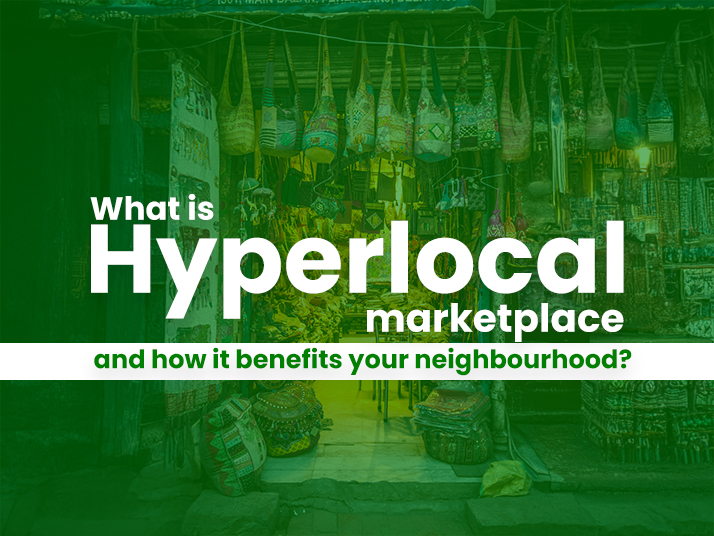The Emergence of Hyperlocal Marketplaces
Hyperlocal markets have revolutionised local economies in a world dominated by eCommerce behemoths. An online platform that connects consumers and local vendors offering goods or services within a certain geographic area is known as a hyperlocal marketplace. Hyperlocal platforms, as opposed to conventional marketplaces, concentrate on regional solution giving , enabling quick delivery and community involvement.
Neighbrsnook is one prominent example of such a platform. Neighbrsnook is a hyperlocal neighbourhood app that connects people. In the context of business, it facilitates the smooth, effective, and user-friendly interaction between local providers and consumers.
Hyperlocal marketplaces are becoming more and more essential as a result of the growing demand for local services and the necessity for businesses to connect with consumers in their immediate vicinity. Their expansion has been further boosted by the introduction of smartphones, digital payment systems, and GPS-powered technology, which makes it simpler than ever for customers to acquire local goods and services.
How Hyperlocal Marketplaces Work
A hyperlocal marketplace uses a straightforward but efficient business concept. Customers, service providers, and local businesses engage inside this digital ecosystem. The process comprises of:
- Vendor Onboarding: Home businessses sign up on a hyperlocal platform and display their goods or services along with comprehensive details about their availability, costs, and descriptions.
- Geo-targeting: To make sure users locate pertinent services in their area, the platform leverages location-based services (LBS) to display just companies in their immediate proximity.
- Consumer Browsing & Ordering: Using an app or website with a secure payment gateway, customers browse the options offered, evaluate costs, read reviews, and place orders.
- Feedback & Reviews: By rating and reviewing vendors, customers contribute to upholding quality standards, improving transparency, and fostering community trust.
Benefits of Hyperlocal Marketplaces for Your Neighbourhood
Hyperlocal marketplaces offer key advantages for neighbourhoods by strengthening local businesses, improving customer convenience, boosting the regional economy, and fostering sustainability.
1. Strengthening Local Businesses
- Local businesses gain more visibility without needing to spend heavily on marketing.
- They can compete with larger brands by offering personalized services, quicker deliveries, and unique product options tailored to community needs.
- Digital shopfronts help traditional stores expand their customer base without costly infrastructure investments.
- Neighbourhood-based businesses flourish, fostering a stronger sense of community and trust.
2. Improved Customer Convenience
- Residents can easily buy products or services from neighbours, reducing wait times and minimizing delivery charges.
- Hyperlocal personalization tailors recommendations based on location, preferences, and purchase history.
- Direct access to local providers improves customer service, offering personalized solutions and quick issue resolution.
- Easy access to fresh produce, homemade goods, and locally sourced items enhances the quality of daily living.
3. Strengthening the Regional Economy
- When money is spent within the neighbourhood, it circulates back into the local economy, stimulating economic growth.
- Increased revenue for local businesses leads to job creation and sustainable economic development.
- Higher tax revenues from local sales contribute to better public services, infrastructure, schools, and community projects.
- Strengthening local supply chains reduces dependency on large, centralized distribution networks.
- Community-driven commerce encourages entrepreneurship, innovation, and business collaborations.
4. Environmental Benefits and Sustainability
- Shorter transportation distances reduce fuel consumption and carbon emissions linked to long-haul logistics.
- Encouraging local sourcing minimizes packaging waste, promoting eco-friendly shopping habits.
- Less reliance on massive warehouses means lower energy usage and environmental impact.
- Supporting local businesses helps decrease urban congestion, lowering traffic and pollution levels.
- Neighbourhoods become more self-sufficient, reducing the need for excessive imports and large-scale industrial production.
Challenges and Solutions for Hyperlocal Marketplaces
Hyperlocal marketplaces provide benefits, but they also have drawbacks that must be resolved if they are to succeed in the long run.
1. The fierce rivalry between bigger marketplaces
Challenge: Hyperlocal suppliers find it challenging to compete in the market, which is dominated by global eCommerce platforms.
Solution: The best part about buying/selling to neighbours is that it is completely safe and chances of quality issues and other issues is less as you can reach out in no time. Let that be your brand position advantage, afterall customers always prefer transparency.
2. Establishing Credibility and Trust
Challenge: Because of doubts about their dependability, customers can be reluctant to purchase from unfamiliar or obscure local providers.
Solution: Trust and credibility are increased via verified vendor profiles, open policies, real-time customer service, and buyer protection measures. Promoting reviews, testimonials, and word-of-mouth advertising from the community helps vendors establish a solid reputation.
3. Problems with Logistics and Last-Mile Delivery
Challenge: It can be difficult to coordinate timely delivery within a constrained geographic area.
Solution: The best part about hyperlocal markets is that it serves an extremely niche client and within a specific area. You can let neighbours know about your delivery timings and the same may be understood as they know about the quality you wish to serve. As to addressing the delivery challenges, again- neighbours can help with the delivery etc.
The Future of Hyperlocal Commerce
Hyperlocal marketplaces are expected to increase significantly as customers place a greater emphasis on sustainability, convenience, and community involvement. The hyperlocal shopping experience will keep changing as a result of developments in blockchain security, drone delivery, AI-driven suggestions, and intelligent supply chain management.
Hyperlocal marketplaces are not merely a fad; they are a revolution in how we shop and interact with our communities by supporting small companies, boosting local economies, and encouraging environmentally beneficial behaviours.
Discover Neighbrsnook, your go-to hyperlocal marketplace for everything your neighbourhood has to offer, if you want to buy with ease and support local businesses!
